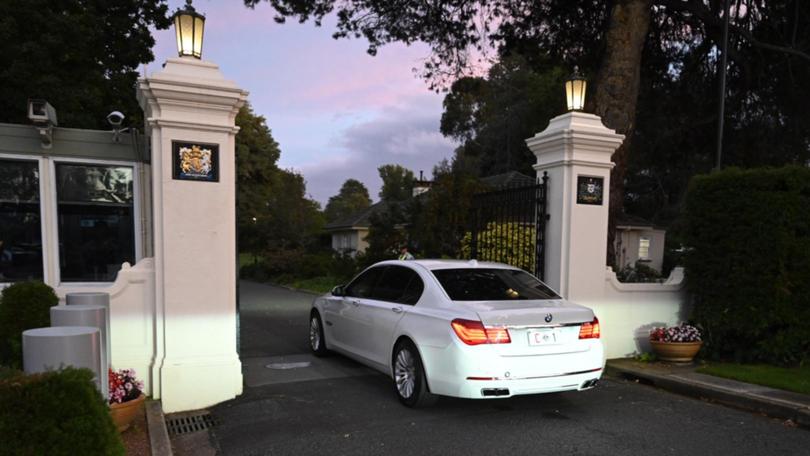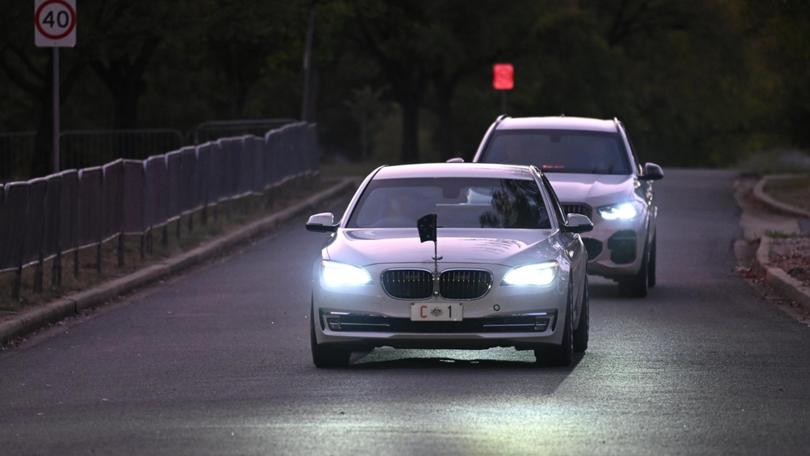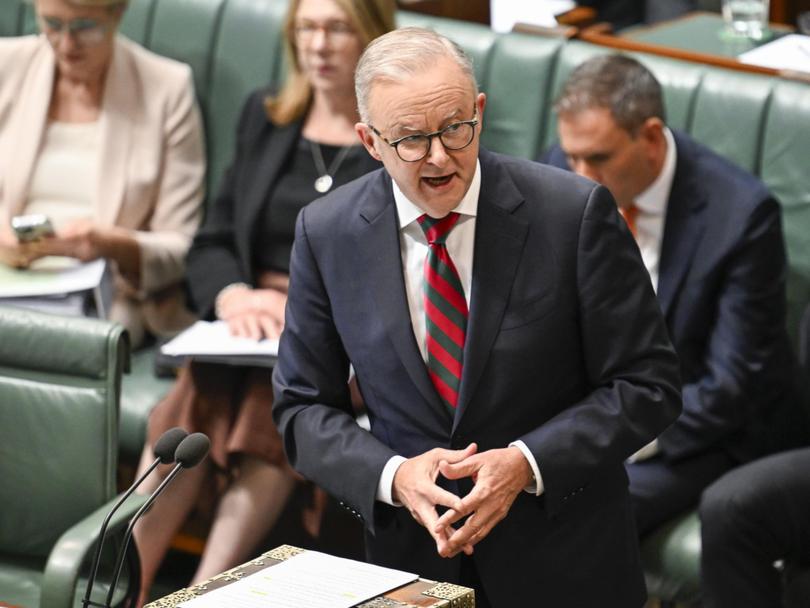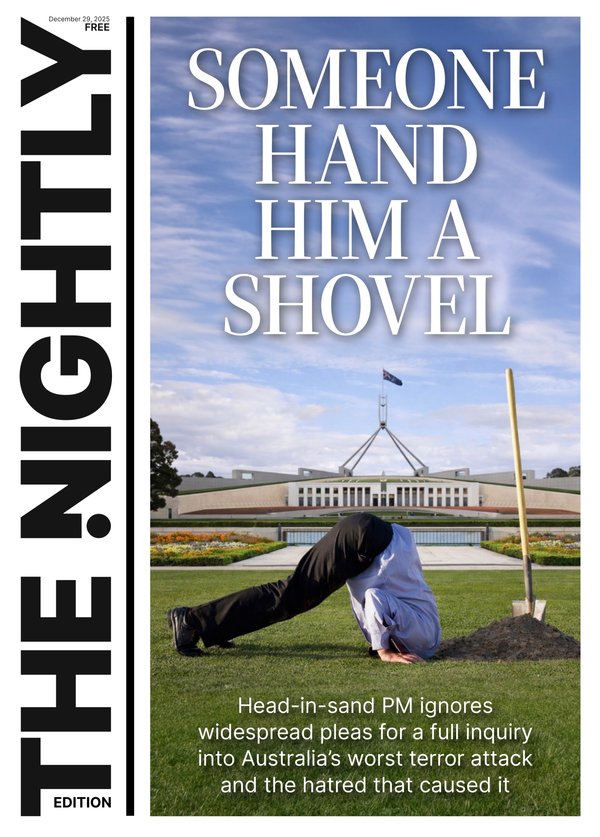Australian Federal Election 2025: Anthony Albanese calls election for May 3

Anthony Albanese has called a federal election for May 3, with Australians set to vote in the next parliament of Australia in just more than five weeks.
The pomp and ceremony began just before 7am on Friday, after the Prime Minister was seen leaving The Lodge, his place of residence in Canberra, to request the dissolution of parliament from Governor-General Sam Mostyn.
Mr Albanese dubbed the election as a choice between “Labor’s plan to keep building or Peter Dutton’s promise to cut”, drawing the government’s key battlelines ahead of the May 3 date.
Sign up to The Nightly's newsletters.
Get the first look at the digital newspaper, curated daily stories and breaking headlines delivered to your inbox.
By continuing you agree to our Terms and Privacy Policy.“In uncertain times, we cannot decide the challenges that we will face, but we can determine how we respond,” he told reporters from Parliament House.
“Our government has chosen to face global challenges the Australian way – helping people under cost-of-living pressure, while building for the future.
“Because of the strength and resilience that our people have shown, Australia is turning the corner.”

He also pitched Labor as the party to unify Australia, and targeted the Coalition for “aiming low” and “punching down”.
“Serving you as Prime Minister is the greatest honour of my life and what drives me each and every day is the determination to build a future worthy of the people of Australia,” he said.
“The world today is an uncertain place, but I am absolutely certain of this – now is not the time for cutting and wrecking, for aiming low, punching down or looking back.
“This is a time for building on our nation’s strengths, building our security and prosperity for ourselves, building an Australia where no one is held back and no one is left behind.”
Mr Albanese said while Labor had achieved a lot in its first term, his government needed another term to “keep building” on progress.
“In challenging times, we have laid very strong foundations. We want to keep building. The Liberals, the Nationals, just want to start cutting,” he said.
“Over the past three years, they have opposed everything we have done to help people with the cost of living.
“If the Liberals had their way, you and your family would be worse off right now, and if they get their way, you will be worse off in the future.”

The start of the election campaign comes the day after Peter Dutton’s budget reply speech, where he vowed to halve the fuel excise for a year, saving families about $750 per car.
It clashes with Labor’s $5-a-week tax cuts which will come into effect from July 1, 2026.
The cost-of-living relief was announced on Tuesday’s budget and rushed through parliament this week, however the Coalition have threatened to repeal the law if they win government.
Mr Albanese is seeking a second term for his Labor government, but it will be a close race.
A series of opinion polls show Opposition Leader Peter Dutton and the Coalition have made significant inroads since the 2022 election, with the chance of a hung parliament growing according to recent polling.
Either major party will need to win a total of 76 seats to form a majority government in the newly reduced 150-seat House of Representatives.
Labor currently holds 78 seats, however it will only hold 77 following the abolition of the Melbourne seat of Higgins.
The Coalition, currently on 55, will need 21 extra seats to win and form a majority government.

The 19-member crossbench is made up of four Greens party members, 13 independents – including seven teals – and Centre Alliance MP Rebekha Sharkie and Bob Katter from Katter’s Australian Party.
The cost-of-living, higher-for-longer interest rates and housing shortages have all played a role in dragging down the government, with voters likely to vent their hip pocket pain at the polls.
According to the latest polling, Australia is most likely headed for a minority government, which means both parties will need to broker a confidence in supply from the crossbench following polling day.
The latest Newspoll, published on March 24, reported the Coalition leading Labor 51 to 49 on a two-party preferred basis, however voters maintained Mr Albanese would make the better Prime Minister on 47 points, ahead of Mr Dutton on 38, with 15 per cent uncommitted.
Newspoll Results
More than half of the seats up for grabs in the House of Representatives will also be contested on new electoral boundaries, making predictions based on past results difficult, while also creating another potential issue for the government.
In the 2024 national redistribution of electorates, the seats of North Sydney in NSW and Higgins in Victoria were abolished, with Teal independent Kylea Tink set to bow out at this election.
A new seat in Western Australia, Bullwinkel, was also created, taking in the state’s Wheatbelt region and Perth’s hills, in the outer metropolis.
Wheatbelt farmers are at odds with the Albanese government over legislation it introduced to ban live sheep exports by sea and have been fighting with the government ever since to keep the industry going beyond May 2028.

At this election, 40 of the 76 Senate seats will also be contested, with Labor currently holding a minority of 25 seats.
The Coalition has 30, and could win back at least two seats from former Liberals David Van and Gerard Rennick.
There is extensive and eclectic cross bench of 21, which includes the headline makers Pauline Hanson, Jacqui Lambie, Lidia Thorpe and Fatima Payman.
Only half of the Senate faces re-election this year, including ACT senators Finance Minister Katy Gallagher and high-profile independent David Pocock and NT senators Indigenous Australians Minister Malandirri McCarthy and the opposition star Jacinta Nampinjinpa Price.
Jacqui Lambie, Greens senators Sarah Hanson-Young, Nick McKim and Jordon Steele-John, Liberal frontbenchers Anne Ruston, Jane Hume and James Paterson, and Pauline Hanson One Nation party senator Malcolm Roberts are among the better-known senators facing re-election.
Unlike the House, the Senate terms change on July 1.
Former Morrison defence minister Linda Reynolds (WA) and Labor senators Catryna Bilyk (Tasmania) and Louise Pratt (WA) will also retire.
More to come
Originally published as Australian Federal Election 2025: Anthony Albanese calls election for May 3
